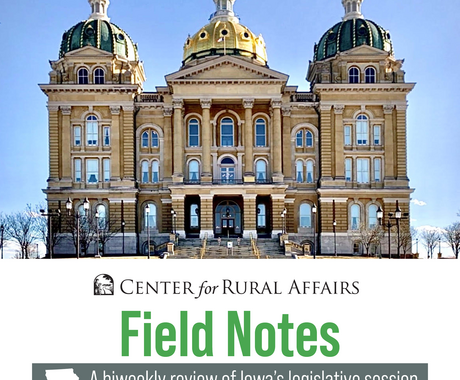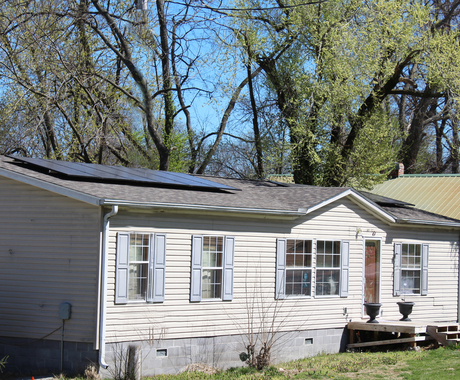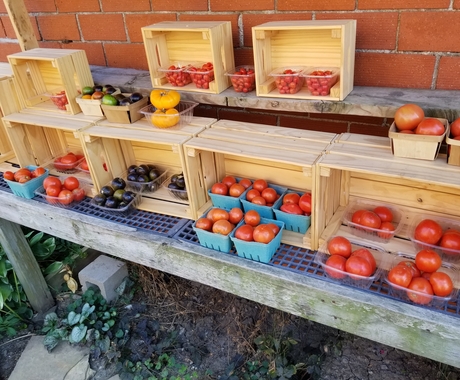Anna Johnson contributed to this story.
Maite Arce works to build up Latino voices so they can be heard in conservation policy and stewardship, and to expand access to community resources.
In 2010, she established the Hispanic Access Foundation, which is focused on issues including community access, financial literacy, improving health outcomes for Latinos, developing and supporting Latino leaders, and more.
“Drawing from my 25 years of nonprofit experience, which encompassed capacity building and fundraising, I began to recognize significant gaps that needed attention,” said Maite. “As CEO, I have a vision to craft enduring strategies that are deeply shaped by the communities we serve. This endeavor has resulted in the establishment of an organization that empowers Latinos with the access, capacity, and confidence needed to drive meaningful and lasting change.”
Because of her work, her passion for the environment, and teaching others how to use and protect what nature offers, Maite received the 2022 Environmental Leader Award, an independent project administratively supported by the Center for Rural Affairs and made possible by the Walton Family Foundation.
The award honors accomplished leaders in the field of environmental stewardship and recognizes individuals with a proven track record and promise of future advancement in the field.
Childhood led Maite to this work
Maite’s childhood home was the small, working class town of El Sauzal de Rodríguez in Ensenada, Baja California, Mexico, a waterfront community that offers fresh seafood, scenic views, and pleasant weather.
Her parents moved the family to southern California when she was very young for better economic opportunities, and she went from living next to the ocean, running around with her cousins, and enjoying fresh vegetables from their backyard gardens, to cautiously navigating an urban neighborhood and playing on blacktop.
“[After the move] we couldn't run around all day, my parents kept us close to be safe,” Maite said. “Access to parks was extremely limited. When I was older, I was able to ride my bike to the beach, and it took me half a day to ride there and half a day to ride back.”
Creating the Hispanic Access Foundation
In the beginning, Maite served as a translator for her family, helping them find jobs, become U.S. citizens, and adjust to their new life. Years later, she recognized that if they had access to the right resources, adjusting to their new home would have been smoother and their lives easier.
She established the Hispanic Access Foundation as a way to bring her full history into her work: advocate for Spanish speakers, improve their access to community resources, and lift up their voices to protect the environment.
“Hispanic Access Foundation’s conservation work brings Latino voices to the forefront of conservation policy and stewardship,” Maite said. “Our conservation programs promote environmental stewardship in the Latino community, elevate Latino voices in conservation policy, activate Latino conservation leaders, and provide them the resources they need to create a more sustainable and equitable future.”
Advocacy efforts ripple through the U.S.
Maite’s advocacy efforts have led to the permanent authorization and full funding of resources such as the Land and Water Conservation Fund and the Great American Outdoors Act. These resources play a pivotal role in addressing nature deprivation in Latino communities, enhancing accessibility to the great outdoors.
“Despite being among the fastest growing populations throughout the U.S., and in some areas the primary driver of population and economic growth, Latino communities are often not represented in environmental decision-making, even as we are particularly vulnerable to the consequences of climate disasters,” Maite said.
With more of a voice in decision-making and advocacy, Maite says Latinos become an “invaluable constituency of the environmental movement and a pillar for systemic change and justice.”
“Latinos consistently poll higher than other demographics in terms of our concern for climate change, support for nature protections, and love of the ocean,” she said. “Hispanic Access Foundation harnesses this potential and activates Latino community leaders as climate and conservation advocacy leaders.”
Traditionally, she said, women of color have been leaders in organizing around environmental justice issues.
“In their neighborhoods, Black and Latina women have been the solution; they have been the ones to organize because there is no other help," Maite said. “Historically, in this nation, things have been done a certain way, keeping these women marginalized, but everything’s changed.”
Pandemic opened eyes to need
The global pandemic brought changes in the way things are done, and Maite said what we experienced and learned during that time was important for the future of conservation work.
“Who are the best people to navigate change, if not the people who have been on the margins having to deal with constant adversity and change and lack of resources?” she said. “They are resilient, they are versatile, amazing problem solvers. Indigenous and other people of
color, particularly women, are the future in the conservation movement.”
Maite also hopes that, with the right connections, information, and guidance, Latinos can adapt more easily to life and preserve their language, history, and culture in the U.S. This not only benefits their families, it also benefits their adopted country, she said.
“What motivated me at my core when I started the Hispanic Access Foundation remains the same today,” Maite said. “For our Latino communities, I have dreams for a bright future, empowerment that fosters equity, untold stories of hidden strength, purpose in our community, and setting a standard worth trusting. If our nation’s Latino communities thrive, our society will be strengthened.”




